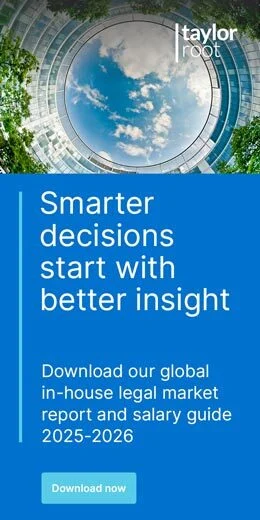Do you need a JD to become a Chief Compliance Officer?
The role of a Chief Compliance Officer (CCO) has become increasingly critical as businesses navigate complex regulatory landscapes. From ensuring compliance with industry standards to mitigating legal and financial risks, the CCO plays a central role in maintaining a company’s integrity and safeguarding its reputation. Given the nature of the position, many wonder if a Juris Doctor (JD), the professional degree required to practice law, is a necessary qualification for this career. The answer is not straightforward and the requirements for becoming a CCO can vary significantly depending on the industry, company and the specific scope of compliance responsibilities.
What does a Chief Compliance Officer do?
A Chief Compliance Officer plays a crucial role in not only meeting legal requirements but also in fostering a culture of accountability and ethical behavior within the company. The role can be broad, encompassing areas such as:
- Regulatory compliance (e.g., financial services regulations, healthcare regulations, environmental laws)
- Risk management
- Internal auditing
- Training employees on compliance matters
- Investigating potential violations of laws or regulations
- Reporting to senior management and external regulators on compliance issues
Given the vast range of responsibilities, a CCO must be knowledgeable not only about the applicable legal frameworks but also about business operations, risk management strategies and industry-specific best practices.
Is a JD required to become a CCO?
While a JD can certainly be beneficial in the journey to becoming a CCO, it is not a strict requirement in most cases. Whether or not you need a JD depends on several factors, including your background, the industry in which you work and the expectations of the company you are aiming to work for.
But ultimately, a JD prepares you to anticipate constraints, ask important questions and maneuver an ever-changing legal landscape.
1. Industry-specific requirements
- Financial services: in highly regulated industries such as banking, insurance and healthcare, many CCOs have legal backgrounds and a JD can be particularly advantageous. Financial services often has complex regulatory elements like SEC governance and the Dodd-Frank act
- Healthcare: health-related industries require an in-depth understanding of complex regulations (e.g. HIPAA) and legal expertise can help navigate these intricacies. A JD, combined with a specialization in compliance or regulatory law, is a strong starting point
- Other industries: In industries like technology, retail, or manufacturing, legal knowledge is still valuable, but it may not be a necessity. A CCO in these sectors might focus more on operational compliance and less on navigating legal frameworks. As such, a JD is not always required, although knowledge of regulatory guidelines and industry-specific laws is still important
2. Company size and structure
- Larger corporations: In large organizations, particularly those with substantial legal teams or complex regulatory obligations, the CCO may work closely with general counsels and legal experts. In such companies, a JD can be advantageous, as it facilitates effective communication with the legal department and ensures compliance with regulatory frameworks. However, many large organizations also consider experience in compliance management, risk assessment and leadership skills when hiring for the CCO role, regardless of the candidate’s formal legal education.
- Smaller organizations or startups: In smaller organizations or startups, a JD may not be necessary. These companies might prioritize hands-on compliance experience, industry knowledge and leadership abilities. The CCO role in such firms may be less about navigating complex laws and more about ensuring internal processes align with industry regulations. In these environments, individuals with experience in compliance operations, business management, or regulatory affairs might be just as competitive as those with legal qualifications.
3. Alternative qualifications
Many CCOs have backgrounds in areas such as accounting, finance, or business management rather than law. Certifications such as the Certified Compliance & Ethics Professional (CCEP) or the Certified Regulatory Compliance Manager (CRCM) are often viewed as valuable credentials for a CCO role, signaling expertise in compliance and risk management without requiring a legal degree. These certifications often emphasize practical compliance knowledge and can be an attractive alternative for candidates who do not hold a JD.
Skills and experience matter more than the degree
The skills, experience and knowledge a candidate brings to the table are often more important than the specific degree they hold. While a JD can certainly help prepare an individual for navigating legal challenges, many companies place a premium on experience in compliance roles, risk management, regulatory reporting and leadership capabilities.
- Interpret complex regulations and laws
- Communicate compliance policies clearly to various stakeholders
- Lead cross-functional teams in implementing compliance programs
- Assess and mitigate risks across various aspects of business operations
How Taylor Root can help you become a Chief Compliance Officer
In summary, a JD is not an absolute requirement for becoming a Chief Compliance Officer. While it can be an asset, especially in highly regulated sectors like finance and healthcare, many successful CCOs come from non-legal backgrounds. What is essential is a strong understanding of compliance, risk management and the specific industry in which you work, along with the ability to lead teams and make strategic decisions.
For those with a passion for ethics, regulations and organizational governance, compliance offers a promising career path with diverse opportunities across industries. Check out our latest compliance opportunities here.
Alternatively, if you are a US firm looking to hire a compliance professional for your organization, please submit a brief and a member of our team will be in touch.




